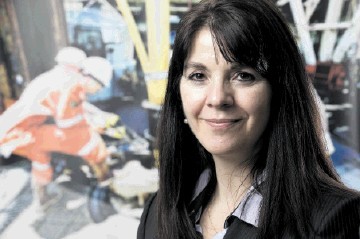
Have you ever noticed how good ideas seem to come in waves? Blu-ray and High Definition DVD, Microsoft Windows and the Apple Mac, even the films in our cinemas seem to follow a trend with one box office hit sparking a flurry of similarly themed offerings which leave the audience unsure about if they picked the best one to spend their money on.
The same is happening in our industry. While the positive drive and passion to address the oil and gas sector’s skills issues is to be commended, there is a danger that the landscape is becoming cluttered.
A number of reports estimating future jobs have been released by various organisations over the last 12 months, some directly looking at oil and gas, others only related to core technical positions and a further category taking in the wider energy mix.
Many have focused only on Aberdeen or Scotland’s needs while others have been UK-wide or even international. As a result, it may be all too easy for confusion to creep in.
Following hot on the heels of these reports have been a series of announcements about the creation of this body to address that part of the problem, or X’s intention to support Y’s objectives.
Accurately predicting recruitment figures can be difficult and having a multitude of initiatives working in isolation could muddy the waters and dilute the delivery and effectiveness of what could be valuable partnerships between education, government and industry.
As the focal point for the industry’s skills, learning and workforce needs, we know that the sector’s needs are best understood and addressed when we speak with one collective voice.
To strengthen industry engagement with all the necessary partners we have recently appointed Darah Zahran to enhance corroboration between the North Sea sector, government and education.
As policy affairs director she will play a key role in informing, influencing and engaging with key decision making structures and forums in order to highlight industry skills needs and work in partnership to help align funding and learning provision against the needs of the industry.
We also have a number of initiatives already under way which will provide immediate solutions to the industry’s most pressing skills needs, such as the fast-track “transition training programmes” (TTP) for up-skilling workers with knowledge and experience from other, potentially declining industries.
Taking a competence-based approach and directly linked to job vacancies in the sector, TTP provides the oil and gas sector with a structured mechanism for replenishing the workforce and managing upturns in the long term.
Following the success of Opito’s pilot programmes, funding was recently secured from the Government’s £2million Energy Skills Challenge Fund which is being used to develop and grow the programme further and Opito are due to launch the first course of 2013 this month.
There is no doubt that there is an increasing understanding at all levels for the need for action. However the work that is being done, across all partnership and all initiatives, will only be truly successful in driving change if we work together.
Larraine Boorman is managing director of Opito UK
Recommended for you
